
1 Corinthians 7:3-11 Bible Teaching
Shawn emphasizes Paul's advice in 1 Corinthians 7:1-11 on marriage, celibacy, mutual consent, and self-control, highlighting individual gifts and the importance of personal interpretation.

Shawn emphasizes Paul's advice in 1 Corinthians 7:1-11 on marriage, celibacy, mutual consent, and self-control, highlighting individual gifts and the importance of personal interpretation.
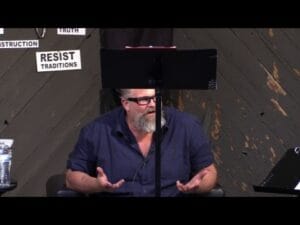
Script currently unavailable.

Paul urges Corinthians to flee fornication, emphasizing bodily purity as the body is the Holy Spirit's temple. Believers, bought by Jesus, should glorify God in body and spirit.

Shawn contrasts Russell's view of the Millennium starting in 70 AD with full preterism's past event view (30-70 AD). McKensie suggests "premillennial preterism," starting the Millennium at AD 70.
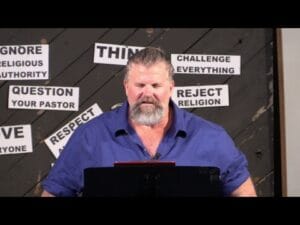
Script currently unavailable.

Believers in Christ are transformed, washed, sanctified, and justified. All actions are lawful but not all are beneficial. Focus on spiritual renewal, avoid sin, live in liberty.
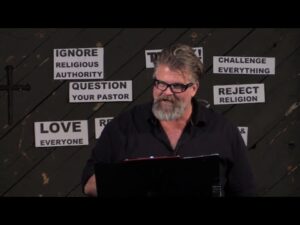
Shawn's teaching explores Revelation 19's prophecy fulfillment, focusing on the destruction of Jerusalem in 70 AD, preterist views, and eschatological interpretations like amillennialism and postmillennialism.

Paul critiques the Corinthians for using secular courts, urging internal resolution of disputes, emphasizing believers' capacity to judge, and highlighting unity and spiritual integrity.
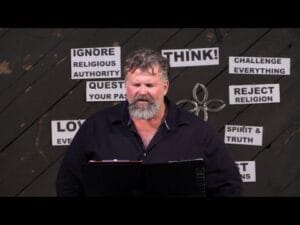
Shawn's teaching highlights the Last Supper's significance, spiritual rebirth, and transformation through Christ's life, death, and resurrection, emphasizing faith-driven living.
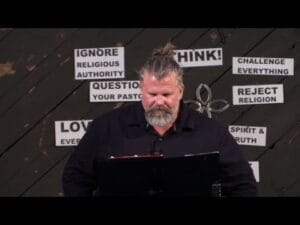
Shawn's teaching on Revelation 19 highlights the symbolic end of Judaism, the spiritual marriage of the Bride of Christ, and the necessity of spiritual readiness. It emphasizes the unified message of Jesus throughout the Bible, portraying Him as the Messiah with divine authority, and discusses prophetic imagery and historical events like Jerusalem's destruction.
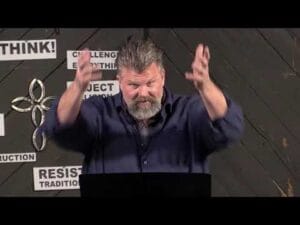
Paul and Shawn emphasize expelling immorality, using leaven as a metaphor for sin. They stress humility, sincerity, and purity, avoiding pride and corrupt influences.

Revelation 19 highlights heavenly celebration for God's judgment, Jesus as "Faithful and True," defeat of evil, and the Church as the Bride. Shawn emphasizes God and Jesus' distinct roles, "Hallelujah" as worship, and the Church's preparation for spiritual union with Christ.

Shawn's teaching links Babylon's fall in Revelation to Jerusalem's 70 AD destruction, highlighting idolatry, covenant shift, and temple's end, using biblical and historical parallels.

Paul addresses immorality in Corinth, urging removal of a man with his father's wife to prevent corruption. He criticizes pride, stresses church purity, and uses apostolic authority.

Revelation 18 details Babylon's fall, symbolizing corruption. Shawn's teaching highlights spiritual desolation, urging believers to separate from sin and maintain faithfulness.
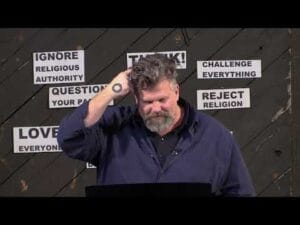
Paul urges Corinthians to imitate him as he follows Christ, emphasizing unity, integrity, and spiritual authority over eloquence. True faith is shown by inner transformation and love.

Paul asserts his apostolic authority, contrasting genuine guidance with false teachings, emphasizing love and spiritual fatherhood. Shawn highlights believers as spiritual parents through the Gospel. The Word of God is powerful, with Jesus as its embodiment, connecting humanity to God.

Shawn's teaching interprets Revelation 17, identifying the woman as fallen Jerusalem, the beast as Nero/Rome, and explores historical context, partial preterism, and prophetic events.

Revelation 17 is interpreted as the judgment of Jerusalem, not Rome, symbolizing Old Covenant Judaism's fall in 70 AD. Shawn contrasts Jerusalem's corruption with the Church's purity.

Paul contrasts self-important teachers with apostles who endure hardships, emphasizing humility, spiritual power, and genuine devotion to Christ over worldly pursuits.